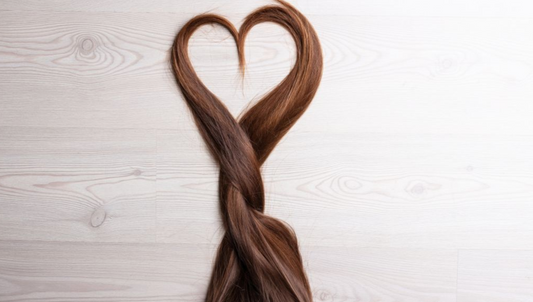If your hair is thinning, you’re likely pointing your finger at your parents. And you’re correct, most male pattern baldness is heavily influenced by your genetics.
However, before you get annoyed with your relatives, you may be interested to know that your gut microbiome, overall health, nutrition, and lifestyle choices are the second biggest contributor to hair loss.
Your gut
Your gut microbiome functions as a regulator of your skin and hair growth.
Inflammation and intestinal permeability (leaky gut) occurs when the delicate intestinal wall is inflamed and compromised, allowing bacteria to leak from your gut into your bloodstream, causing an auto-immune reaction. Leaky gut also exposes hair follicles to inflammatory factors, immune dysregulation, and cellular damage. Inflammation in the gut perpetuates pro-inflammatory cytokines, which impact the growth cycle of hair follicles.
Impaired absorption or poor assimilation of nutrients may occur as a result of a dysfunctional gut. Healthy hair is reliant on amino acid metabolism, requiring assimilation in the digestive tract and the support of specific gut bacteria.
While hair loss may be the ‘tip of the iceberg’ and our primary visible concern, hair health generally requires a systemic approach. Your gastrointestinal system plays an important role in the health of your hair follicles. While balanced nutrition is important, you also need a healthy microbiome to facilitate proper absorption and assimilation of nutrients. When we have a balanced, healthy microbiome, this may also reduce the impact of opportunistic bacteria that can lead to hair loss. Deficiencies in micronutrients, such as fat-soluble vitamins A, C, E and D are, in part, associated with gut health, and may impact hair growth and structural changes.
Your weight
Regulation of your hormones is negatively impacted when you’re overweight or obese, which can slow the pattern of replacing hair in its growth cycle, or may cause hair to fall out completely. Obesity and the resultant poor health may also require medications to control cholesterol levels and/or blood pressure, which may also have the side-effect of hair loss.
Your food
You are what you eat is true in most health matters, including your hair. An adequate balance of supporting nutrients, such as iron, zinc, magnesium, calcium and protein, are all important for healthy hair. Restrictive diets, such as those eliminating valuable sources of protein, can have a detrimental impact on your overall health and hair growth. Consuming grass-fed red meat, seafood, raw nuts and seeds and dairy are all conducive to the right nutrient balance.
Your habits
We all know that smoking is bad for almost every aspect of our health, but did you know it also restricts the blood vessels that supply your skin and hair follicles? Like the rest of your body, your hair follicles require an adequate blood supply to remain healthy. So, if quitting to reduce your risk of heart disease and cancer wasn’t enough, perhaps thinning hair will get you across the line!
Making your gut health a priority
In making the necessary lifestyle changes to better nourish your hair health, keep in mind that you may need to exercise patience to start noticing positive changes. Even the healthiest hair grows relatively slowly, so it could take 6-12 months for you to notice improvements. It will also take time to reduce systemic inflammation, heal a leaky gut and restore optimum gut health, allowing your hair follicles to thrive. As many diseased states originate in the gut, focus on optimising your microbiome will facilitate many systemic health improvements. The therapeutic opportunities in improving your gut health include a reduction in process and refined foods, an increase in dietary (prebiotic) fibre, fat loss, regular exercise, stress management and the consideration of dietary supplements to support and compliment your healthy lifestyle changes.
If you’re keen to analyse your current microbiome health, check out our Microbiome Mapping pathology report to test the health of your gut.
























